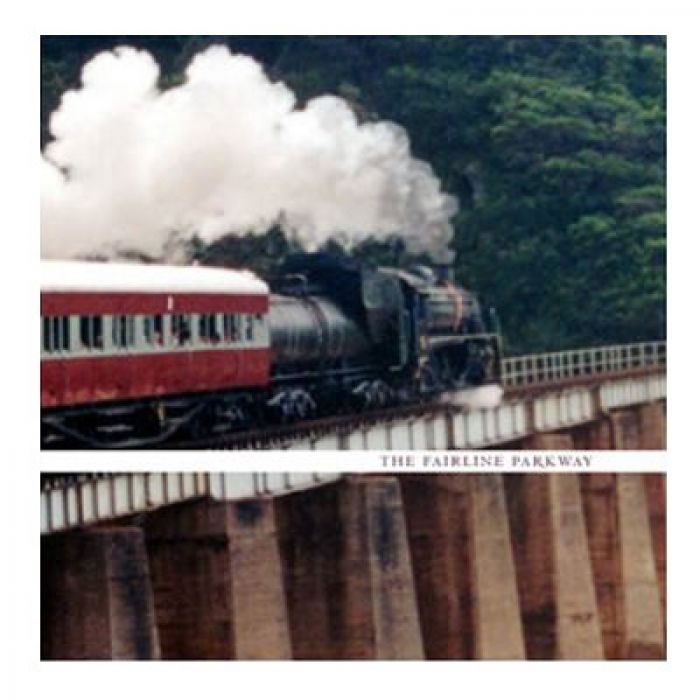The Fairline Parkway by The Fairline Parkway (Review)

With the recently announced death of the Elephant 6 Recording Company, the future of Georgia’s indie rock seems to be on as shaky ground as any time in the recent past. No doubt, an R.E.M or Olivia Tremor Control are probably lurking around the proverbial corner, waiting to spring from the fertile soil of one of America’s undeniable homelands for independent music. Still, 2002 was a notably slow year for the bands of the region, with few truly memorable releases or debut entries making any relevant artistic waves. In fact, we could have used a lot more releases on the same level as The Fairline Parkway’s debut.
Although hailing from Atlanta, which technically lies a bit to the south of the much-lauded Athens, the duo of Zachary Okun and Raj Gadhia adds a shade not terribly prevalent in the Georgian indie pop continuum. Featuring neither chiming guitar nor psychedelic pretensions, the band relies on soft melodies wrapped in expertly layered arrangements that shift between the dynamics of tension and release.
Belle & Sebastian have been singled out by many critics as a reference point, but such comparisons ultimately seem a bit misleading as most of the tracks feature little of the obscure references, fey wit, or preciously constructed instrumental textures associated with the Scottish band. The Fairline Parkway seems more comfortable exploring sonic moods, displaying a steady hand in creating carefully constructed (generally repetitive) structures.
Whether employing a solitary piano line to carry out the solemn melody of the arrangement in the opening “Street” or riding a slinking bass over atmospheric synths in “Road on Fire,” the band uses deceptively simple arrangements to create subtly enduring hooks. The two-chord groove of the rising and falling “Bores Me” is reminiscent of the more restrained early work of Elliott Smith, before the songwriter traded his career in sadcore for more lush arrangements. Similarly, the delicate acoustic guitar and softly wafting vocals of “The Console” and the beautifully tinkling keyboards of the pristine “This Kid” achieve a level of complexity and accessibility common with the better strains of modern chamber pop.
Of course, many such arrangements ultimately run the risk of becoming so understated and laid-back that they leave little lasting impression on the listener, with melodies that only lazily rub up against you instead of worming their way into your head. For the most part, The Fairline Parkway avoids the worst implications of this conundrum, although one’s attention may occasionally wander.
In the end, few bands have so skillfully connected the aesthetic dots between sadcore and chamber pop. Even as most of the songs feature fairly similar melodies, and the textures, while pleasant, tend to repeat themselves a bit too much, the totality of the album is generally successful. Most likely, their abilities to craft memorable melodies will become further refined and on future releases lose a bit of the meandering quality that keeps the songs from taking on a dynamic presence entirely their own.
Similarly, the band could be expected to display a bit more personality, either in performance or lyric, on their next outing. Until then, they’ve given us more than enough evidence that their strengths will carry them on to their next level of progression, with their debut providing an impressively resilient primer. Who knows? They could end up leading the next wave of breakthrough bands out of Georgia.
Written by Matt Fink.